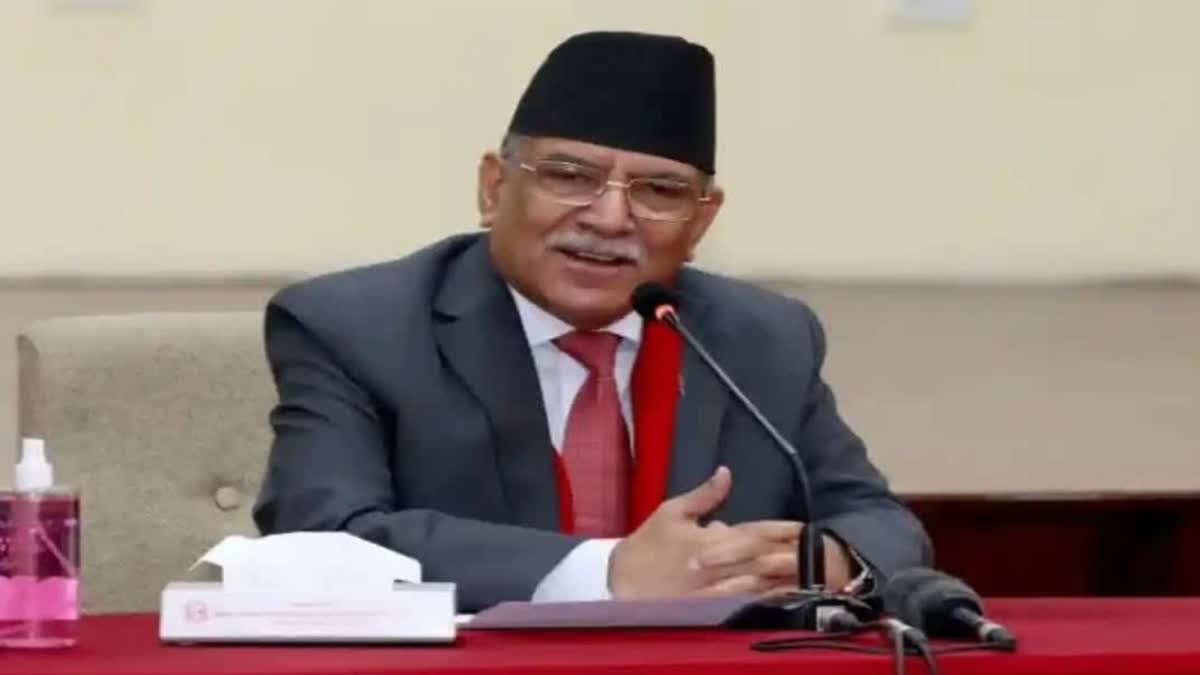New Delhi: Despite facing the prospect of a loss, Nepal Prime Minister Pushpa Kamal Dahal of the Communist Party of Nepal–Maoist Centre (CPN-Maoist Centre) has opted to go for a vote of confidence in parliament instead of stepping down after the Nepali Congress and the Communist Party of Nepal-Unified Marxist Leninist (CPN-UML), the two largest parties in the House of Representatives, signed an agreement to form a new coalition government in the Himalayan nation.
Following a series of swift political developments over the last few days, Sher Bahadur Deuba, former Prime Minister and president of the Nepali Congress, and KP Sharma Oli, also a former Prime Minister and leader of the CPN-UML which is also part of the ruling Dahal-led Leftist coalition, signed an agreement on the intervening night of Monday and Tuesday to form a new coalition government in Kathmandu. According to the deal, Oli, and then Deuba, will serve as prime ministers on a rotational basis during the three-and-a-half-year tenure left of the present government.
Following this, the CPN-UML asked Dahal to step down from office on Wednesday as per Article 76 (2) of the country’s constitution. According to Article 76 (2), the President shall appoint as the prime minister a member of the House who can command a majority with the support of two or more parties.
However, a meeting of office-bearers of the CPN-Maoist Centre decided that Dahal would not step down and instead go for a vote of confidence in the House of Representatives. According to Article 100 (2) of the constitution, if the political party the prime minister represents is divided or a political party in the coalition withdraws its support, the prime minister shall table a motion in the House of Representatives for a vote of confidence within 30 days. This basically gives Dahal just a month more to continue in office. Even as this report is being filed late Wednesday evening, the CPN-UML has withdrawn its support to the Dahal-led coalition. According to a report in the Kathmandu Post, all the CPN-UML ministers in the coalition would tender their resignation later in the evening.
The latest development is the culmination of the ever-changing political landscape of Nepal. It is worth mentioning here that the Nepali Congress was earlier part of the Dahal-led coalition at the centre. However, in March this year, the CPN-Maoist Centre severed all ties with the Nepali Congress and invited the CPN-UML to join the coalition. The other initial partners in this new coalition were the Rastriya Swatantra Party and the Janata Samajbadi Party. However, the Janata Samajbadi Party withdrew support to the coalition in May this year citing differences with the CPN-Maoist Centre.
Meanwhile, both Dahal and Oli were reportedly unhappy with the new arrangement. Dahal was cited as acknowledging that the current ad hoc politics in the country was unsustainable and stating that he could do precious little but keep shuffling ministers. That Oli too was not satisfied with the arrangement became evident when he described the annual budget presented by the government as a “Maoist budget”.
All this led to mistrust between the CPN-UML and the CPN-Maoist Centre. According to Pradeep Gyawali, deputy general secretary of the CPN-UML, Dahal was in touch with the Nepali Congress for over the last month or so to form a national consensus government. This became a major cause of mistrust between the CPN-UML and the CPN-Maoist Centre. However, when the Nepali Congress rejected Dahal’s proposal, the CPN-UML decided to take things in its own hands.
“The UML and the Congress started talking and decided to move ahead together for political stability and democratic exercise,” a Post report quoted Gyawali as saying.
Last Saturday, Oli and Deuba held a closed-door meeting. On Monday, Oli held a separate meeting with Dahal. Following this, Oli and Deuba sealed the deal.
